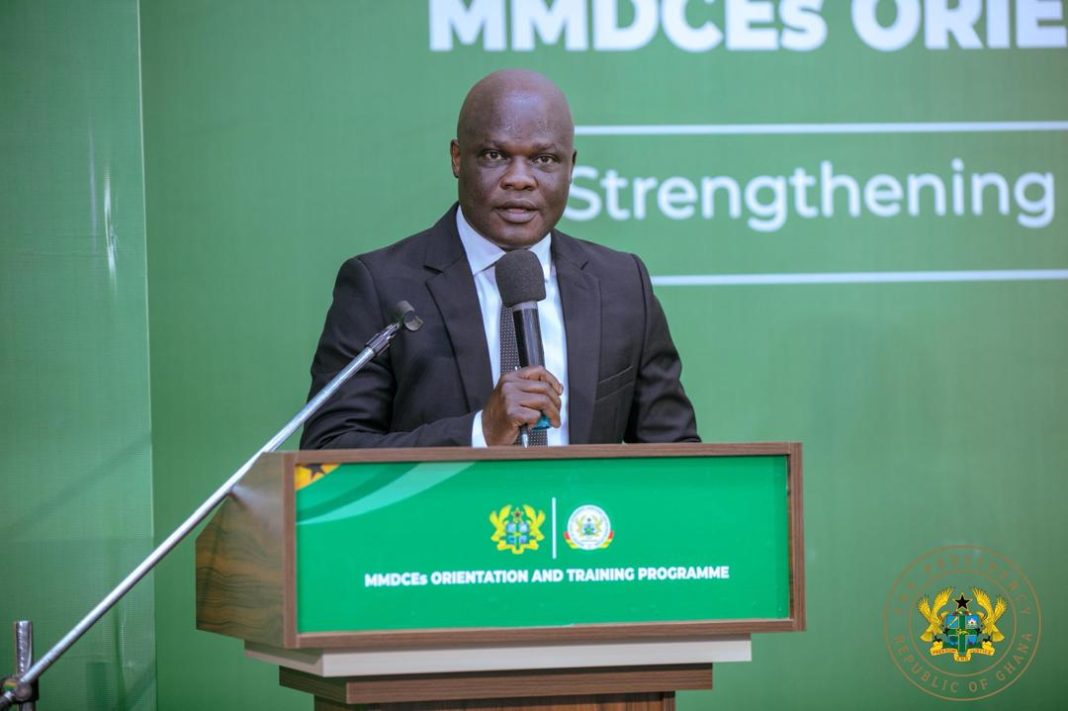By Iddi Yire
Accra, June 20, GNA – Mr. Ahmed Ibrahim, the Minister of Local Government, Chieftaincy and Religious Affairs, has encouraged Metropolitan, Municipal and District Chief Executives MMDCEs) to eschew the tendencies of being armchair politicians and administrators.
“We must learn from the President by continuously engaging and interacting with the people of Ghana to understand their needs and to work with them to be able to achieve the development they are looking for,” Mr. Ibrahim stated.
In an address at the orientation workshop for newly confirmed MMDCEs at the Institute of Local Government Studies in Madina, near Accra, the Minister urged the MMDCEs to deliver on the promises contained in the NDC’s 2024 election manifesto for the benefit of Ghanaians.
The orientation programme was opened by President John Dramani Mahama.
This year’s orientation on the theme “Strengthening Local Governance Through the Reset Agenda”, reflects the core of the ruling National Democratic Congress’ (NDC) 2024 Manifesto, Resetting Ghana: Jobs, Accountability and Prosperity.
Mr. Ibrahim said: “The people know the President through you. So, it’s a very big cross. As the chief representative of the central government at the local level, the onus is on you to orchestrate the vision and ensure the effective implementation in the notes and chronicles of the 261 MMDCEs of Ghana is achieved.”
Mr. Ibrahim noted that the current nomenclature of the MMDCEs’ sector Ministry, as set out by the President, depicts a tripod – Local Governance, Chieftaincy, and Religious Affairs.
He said as MMDCEs, they represent the tripod, which strategically brings together three independent institutions that had always been part of the local governance system but operated under different state administrative structures.
The Minister said the major record was the potential synergy among the institutions to contribute positively towards local governance and development.
He said the tripod therefore had implications for the work of the MMDCEs towards effective local governance, accountable service delivery, and local development.
Mr. Ibrahim said the orientation was not just a formality, but it was also one of a series of capacity building innovations for MMDCEs.
He said the three-day orientation and training was a foundational exercise and intended to equip the MMDCEs with the relevant philosophies, tools, values, and clarity needed to lead effectively.
The programme would therefore cover essential things such as the development blueprint of the ninth government of the Fourth Republic, the roles and responsibilities of MMDCEs under the Local Governance Act 2016, Act 936, the 24-Hour Economy, and other socio-economic recovery and flashy programs.
GNA
Edited by Benjamin Mensah
